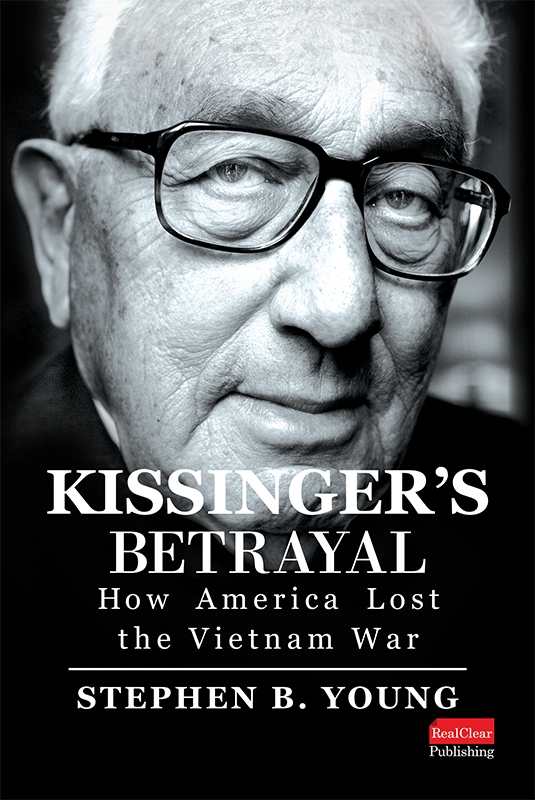Kissinger's Betrayal
How America Lost the Vietnam War
Kissinger’s Betrayal uses historical documents and analyses to show that ignorance, prejudice, and malice contributed to a notorious military defeat, and the rise of a dictatorship, in Vietnam.
Stephen B. Young’s politically attuned book Kissinger’s Betrayal investigates how and why the US withdrawal from Vietnam went wrong.
Adding to a bevy of theories regarding how the US lost the undeclared Vietnam War, this book argues that two separate but intertwined forces led to the defeat: the spread of the antiwar movement in the US and National Security Advisor Henry Kissinger’s unilateral decision to let communist North Vietnam retain troops in South Vietnam after the US withdrew. It also asserts that these factors and the subsequent communist takeover of Vietnam changed the US in ways that still haunt national policies and politics.
Drawing on declassified documents, memoirs, and personal conversations, the book builds its case against Kissinger, suggesting that Kissinger’s views on the war evolved over time and that Kissinger kept the US and South Vietnamese governments in the dark as he negotiated with communist Hanoi to give it a clear military advantage. It’s a damning perspective on an already polarizing figure. Further, documents included in the back of the book allow for independent assessment of some of Kissinger’s actions and communications with others.
There are some intriguing revelations here, including a suggestion that the Paris Peace Accords were the product of the years that Kissinger spent working to undermine and betray South Vietnam. Western ignorance of and prejudice against the Vietnamese people and their customs only aided his effort, it shows. The final chapter reveals the full scale of the tragedy that unfolded as a result, exacerbated by the US’s refusal to offer aid as promised—or even to take in sufficient numbers of refugees from the affected nations.
However, in building its arguments, the book omits critical information, resulting in a lack of nuance in its portrayal of the people, events, and organizations involved. For instance, it demonizes the antiwar movement, claiming that it was motivated by racism, a lack of willingness to die for American “ideals and goodness,” and the desire to believe French colonialist lies, rather than what the book calls “truth put forth by their own government.” The movement’s other major motivations are ignored, including government deception exposed by the release of the Pentagon Papers, media coverage of the brutality and human cost of the war, and well-publicized atrocities like the My Lai massacre. The book’s attempt to put a positive spin on the South Vietnamese president’s political misdeeds is unconvincing, as is its attempt to diagnose Kissinger with a mental health condition. Further, the book’s afterword devolves into a rant against feminism, “reverse racism,” and anyone deemed not “traditional.” The end result of these disparate analyses and logical leaps is a work that, though it contains some revealing information, is undone by its biases.
Kissinger’s Betrayal uses historical documents and analyses to show that ignorance, prejudice, and malice contributed to a notorious military defeat, and the rise of a dictatorship, in Vietnam.
Reviewed by
Eileen Gonzalez
Disclosure: This article is not an endorsement, but a review. The publisher of this book provided free copies of the book and paid a small fee to have their book reviewed by a professional reviewer. Foreword Reviews and Clarion Reviews make no guarantee that the publisher will receive a positive review. Foreword Magazine, Inc. is disclosing this in accordance with the Federal Trade Commission’s 16 CFR, Part 255.

